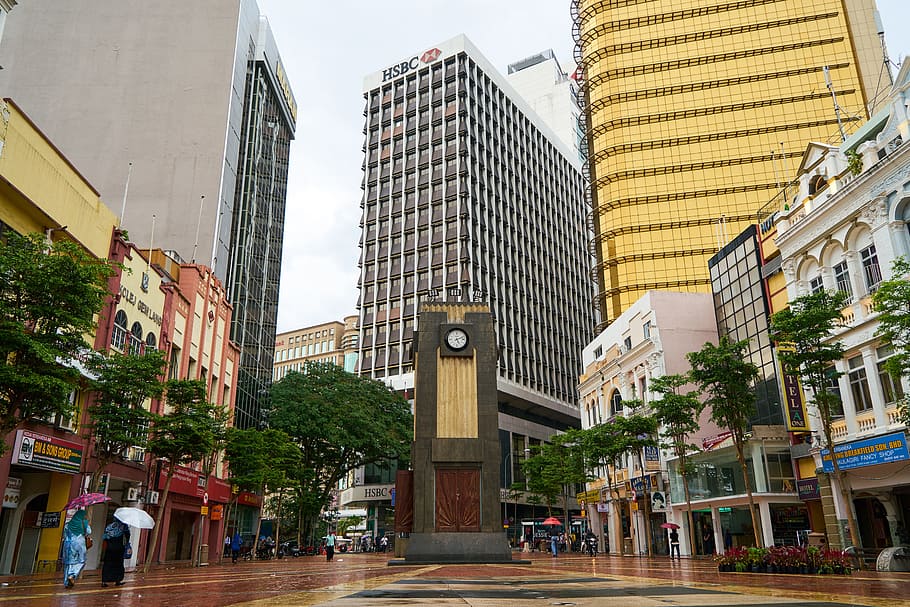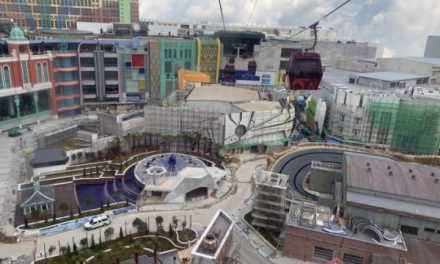E-commerce to drive industrial property market
The industrial property market remains a bright spot in an otherwise sluggish market. According to CBRE|WTW managing director Foo Gee Jen, the overall property market saw a slight improvement in 2019, but market sentiment is still skewed towards the downside. “The industrial sector has typically been underrated in our market, but it is perhaps the silver lining. At this point in time, the right industrial property could be yielding as high as 7% to 9% compared with the other asset classes, where a yield of 5% to 6.5% is expected,” says Foo. The performance of the industrial property segment is driven by improvements in the industrial market, contributed by FDI and improvements in e-commerce. Budget 2020 has introduced various incentives to attract FDI and promote SME developments in the country, which will continue to increase demand for the industrial property market. (The Edge)
Malaysian property stock surges as much as 118%
Shares of the little-known Malaysian builder Thriven Global Bhd jumped as much as 118% on Monday on speculation that the company’s ties with Tan Sri Muhyiddin Yassin, Malaysia’s new prime minster, can boost its business. Muhyiddin’s son Fakhri Yassin Mahiaddin is the chairman of the developer, according to data compiled by Bloomberg. “It is purely a speculation” that Thriven, which is connected to the new prime minister, will see an increase in business due to its family connections, said Danny Wong, chief executive officer at Areca Capital Sdn. Investors are monitoring stocks linked to the government and politicians as Malaysian equities slide to an eight-year low on coronavirus fears and political upheaval. (NST Online)
Fate of Dewan Rakyat sitting on March 9 still unknown
The question of whether the Dewan Rakyat sitting which is scheduled to start on March 9, will proceed or be postponed, remains unanswered, as the Speaker said he has not received any reply from the newly-appointed prime minister Tan Sri Muhyiddin Yassin. “I’m still waiting for the reply, that’s about it,” Tan Sri Mohamad Ariff Md Yusof said. Yang di-Pertuan Agong Al-Sultan Abdullah Ri’ayatuddin Al-Mustafa Billah Shah is scheduled to open the Third Meeting of the 14th Parliament on March 9, but the sitting may not take place on that date, due to the shocking change in government. There has been talks that the sitting might be postponed to give way to the prime minister to form his new line-up of cabinet ministers. (The Edge)
Guocoland to sell Menara Guoco to Tower REIT for RM242.1m
Guocoland (Malaysia) Bhd has proposed to dispose of Menara Guoco in Damansara Heights to Tower REIT for RM242.1 million cash, in a related party transaction. It is expected to realise an estimated net gain on disposal of RM6.8 million for Guocoland. The exercise is expected to be completed by the third quarter of 2020. Menara Guoco is a a 19-storey office building which forms part of an integrated commercial development known as Damansara City, comprising another office building, a hotel, a retail mall, serviced apartments and car parks. DC Offices acquired the development rights in respect of the property in 2012 and completed the construction in 2015 with a total cost of investment of RM165.1 million as at Feb 6, 2020. Tower REIT’s portfolio comprises two commercial office buildings located in Kuala Lumpur. (The Sun Daily)
Virus pushes the global economy closer to a contraction
Global economic growth will sink to levels not seen in over a decade as the coronavirus outbreak hammers demand and supply, challenging central banks and governments to respond to a fast-changing situation, according to the Organisation for Economic Co-operation and Development (OECD). The Paris-based group also warned of possible global contraction this quarter. It cut its full-year growth to just 2.4% from 2.9%, which would be the weakest since 2009. If the situation worsens,”co-ordinated policy actions across all the major economies would be needed” for health care and economic stimulus, it said. There are some measures governments can and must take immediately, the OECD said. Those could include fiscal support for health services, flexible work regimes with guarantees on take-home pay, providing liquidity to the financial sector, targeted support for affected industries like tourism, and looser state aid and fiscal rules. (The Star Online)





